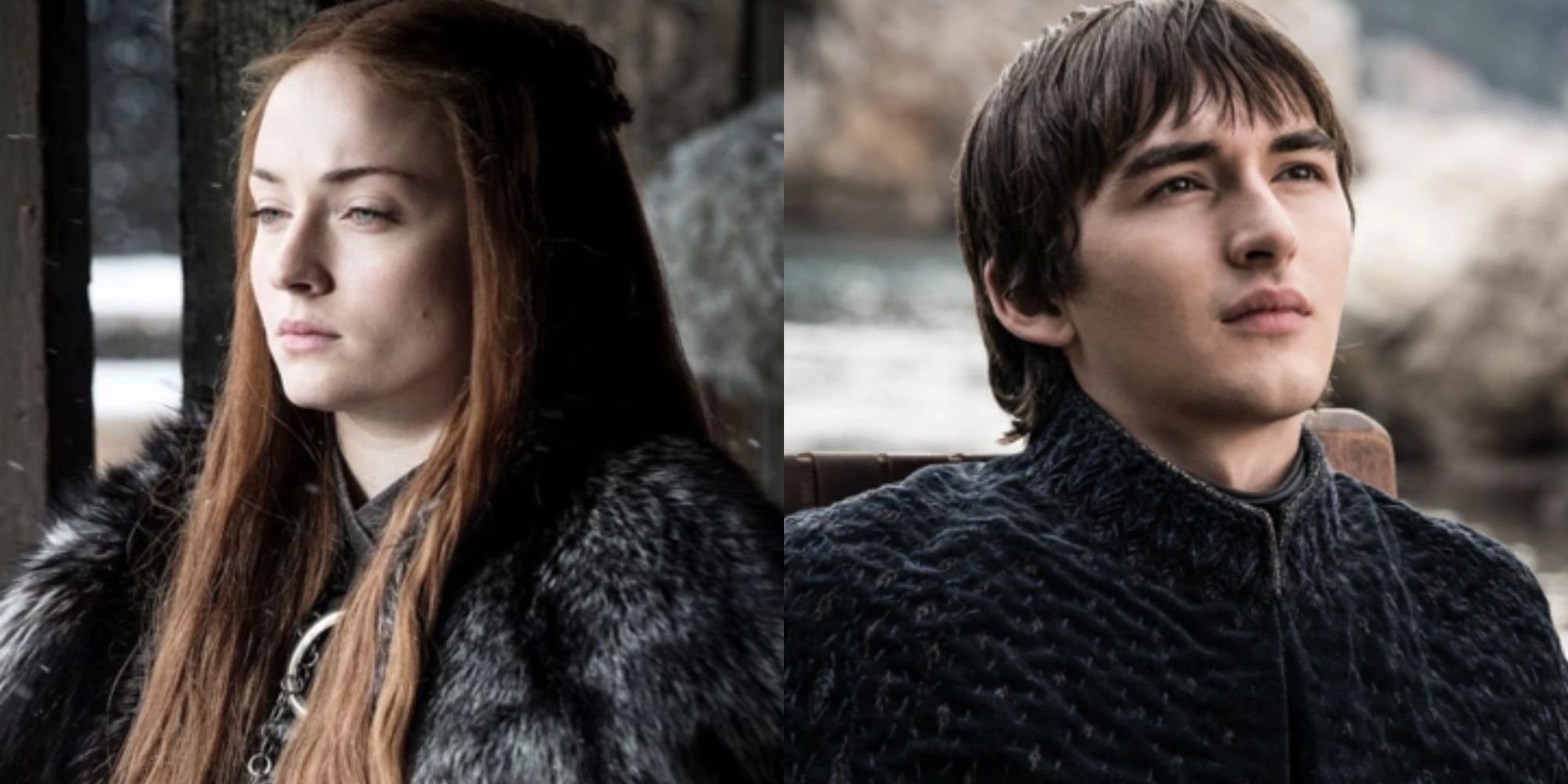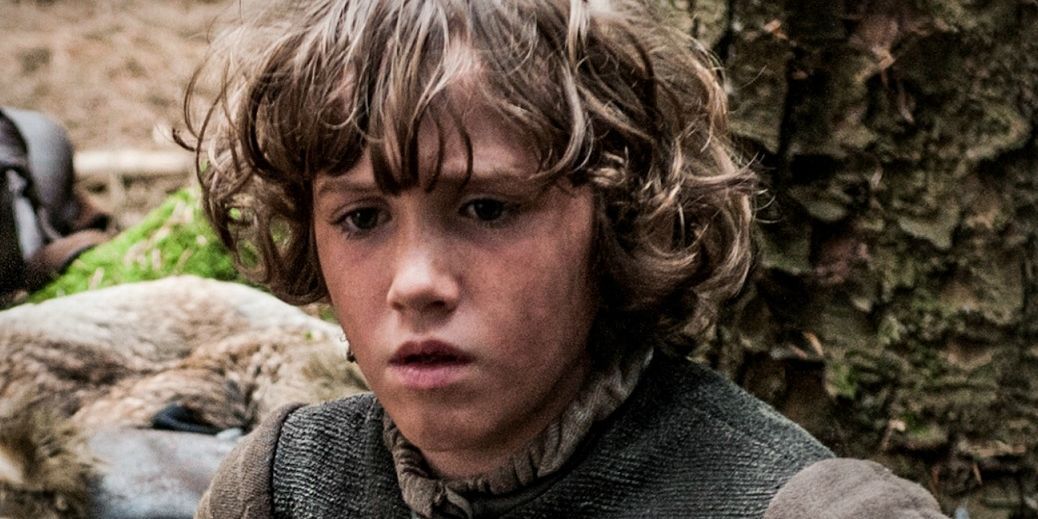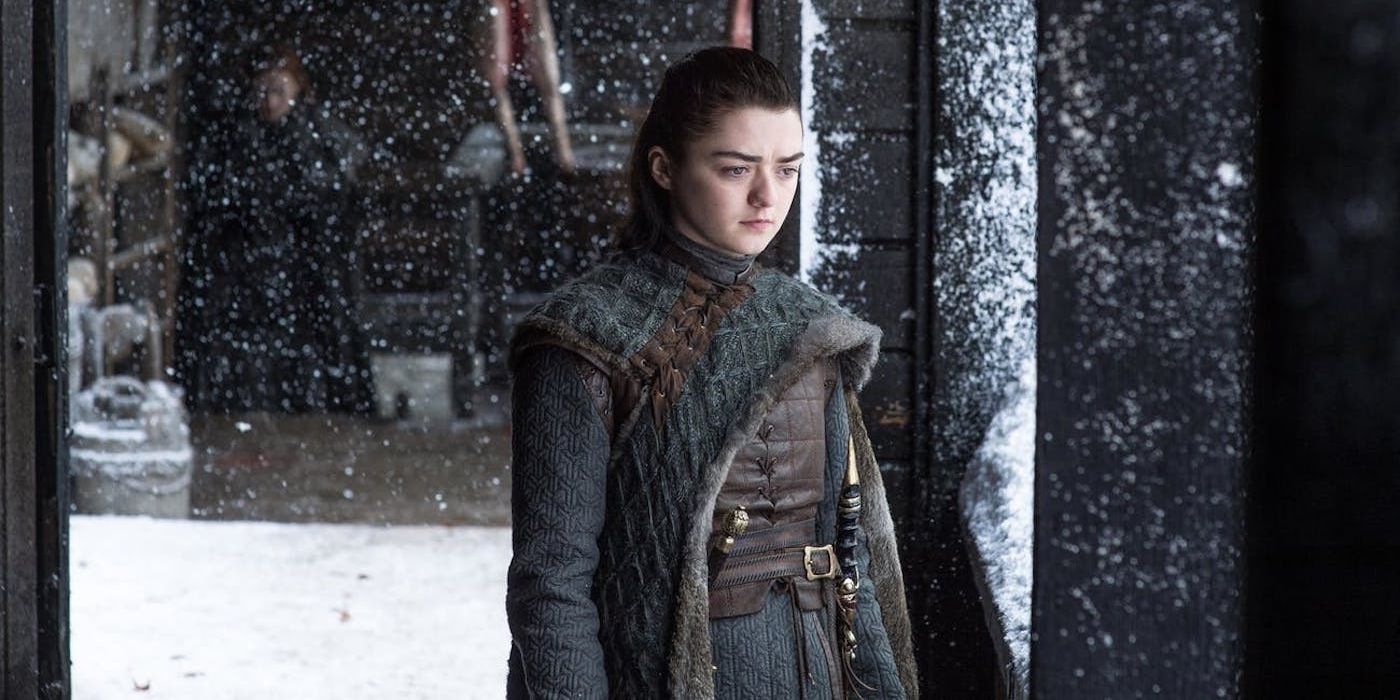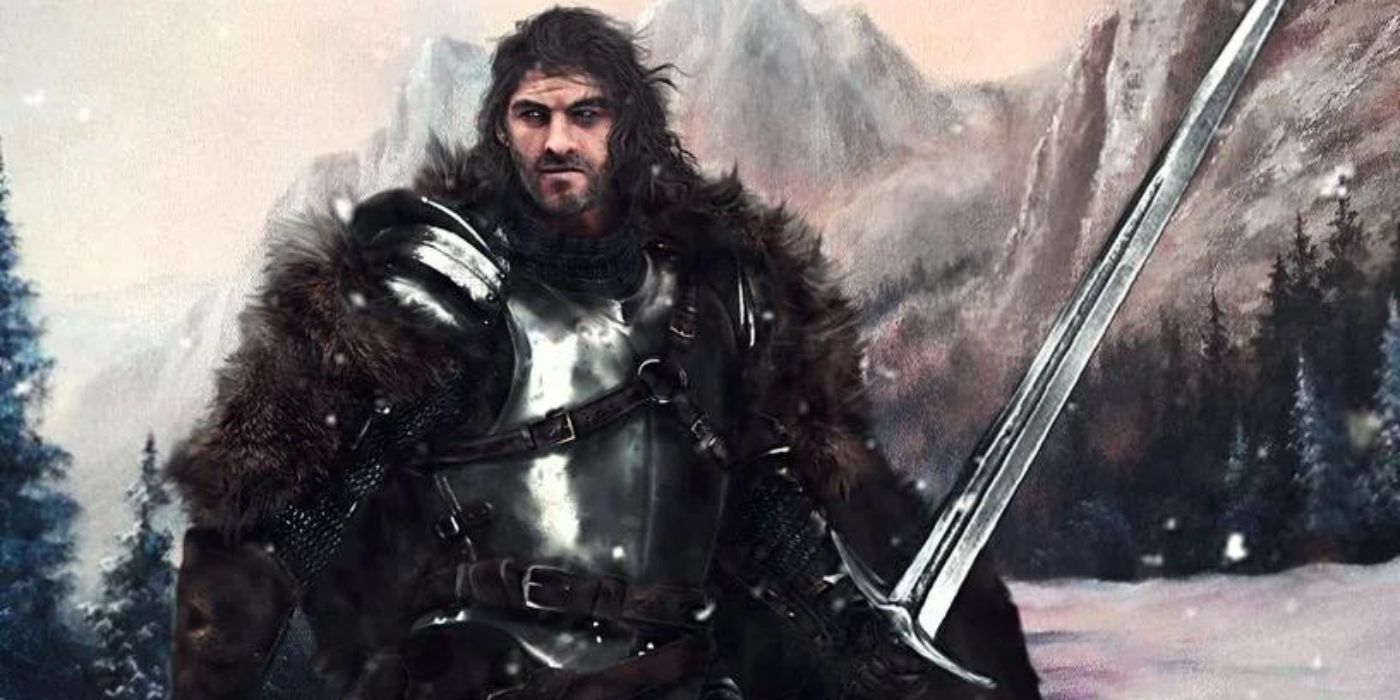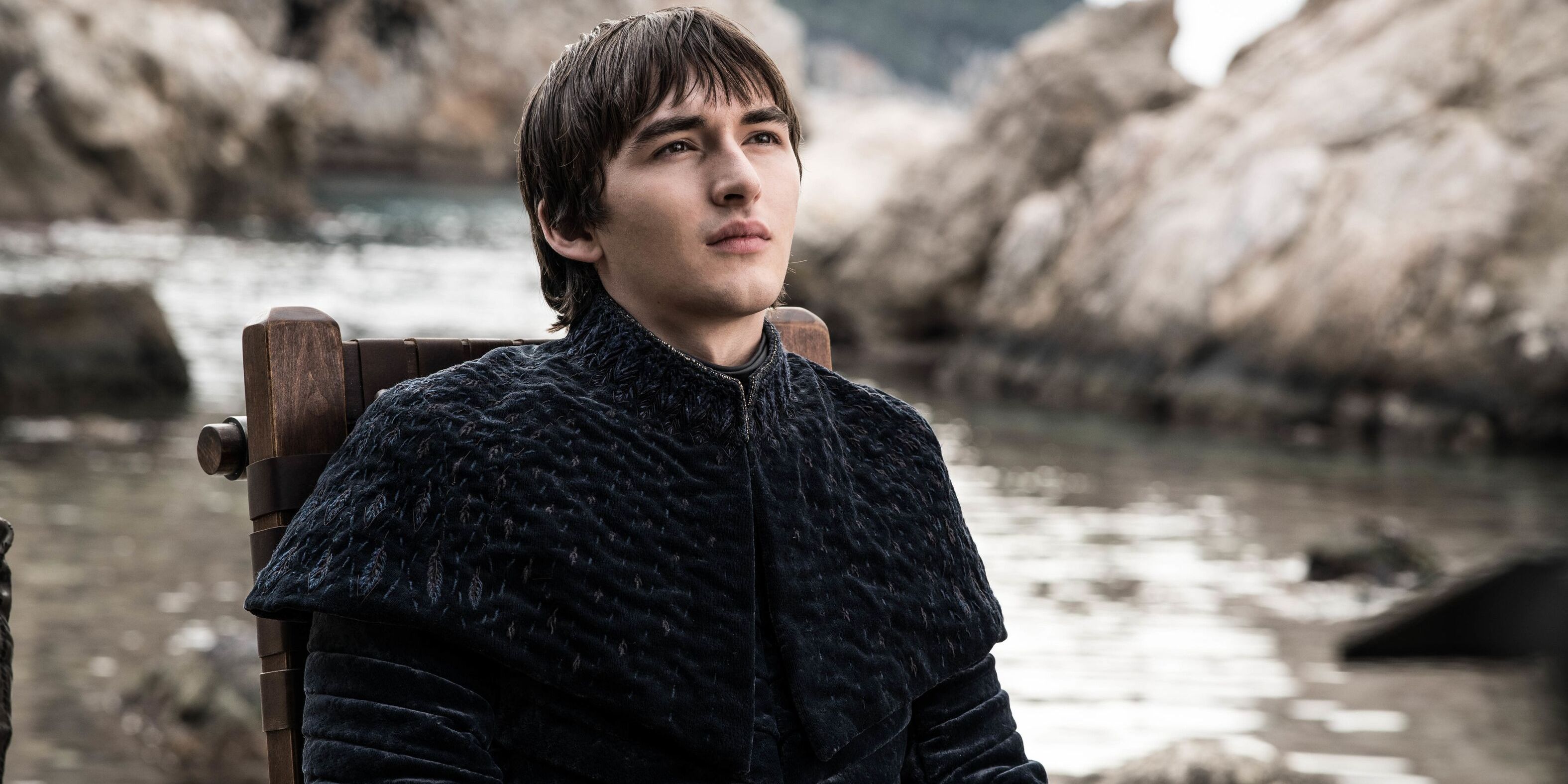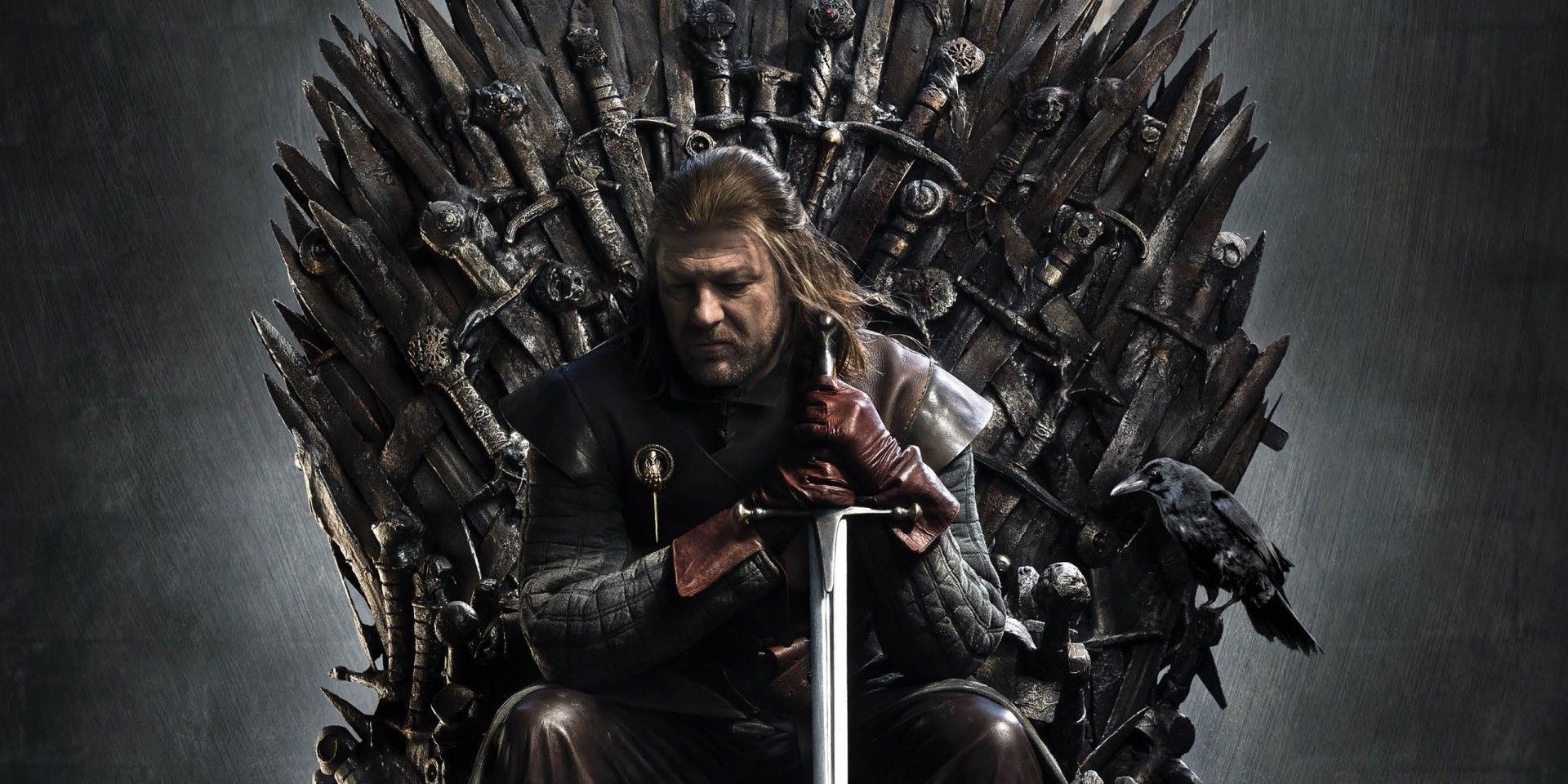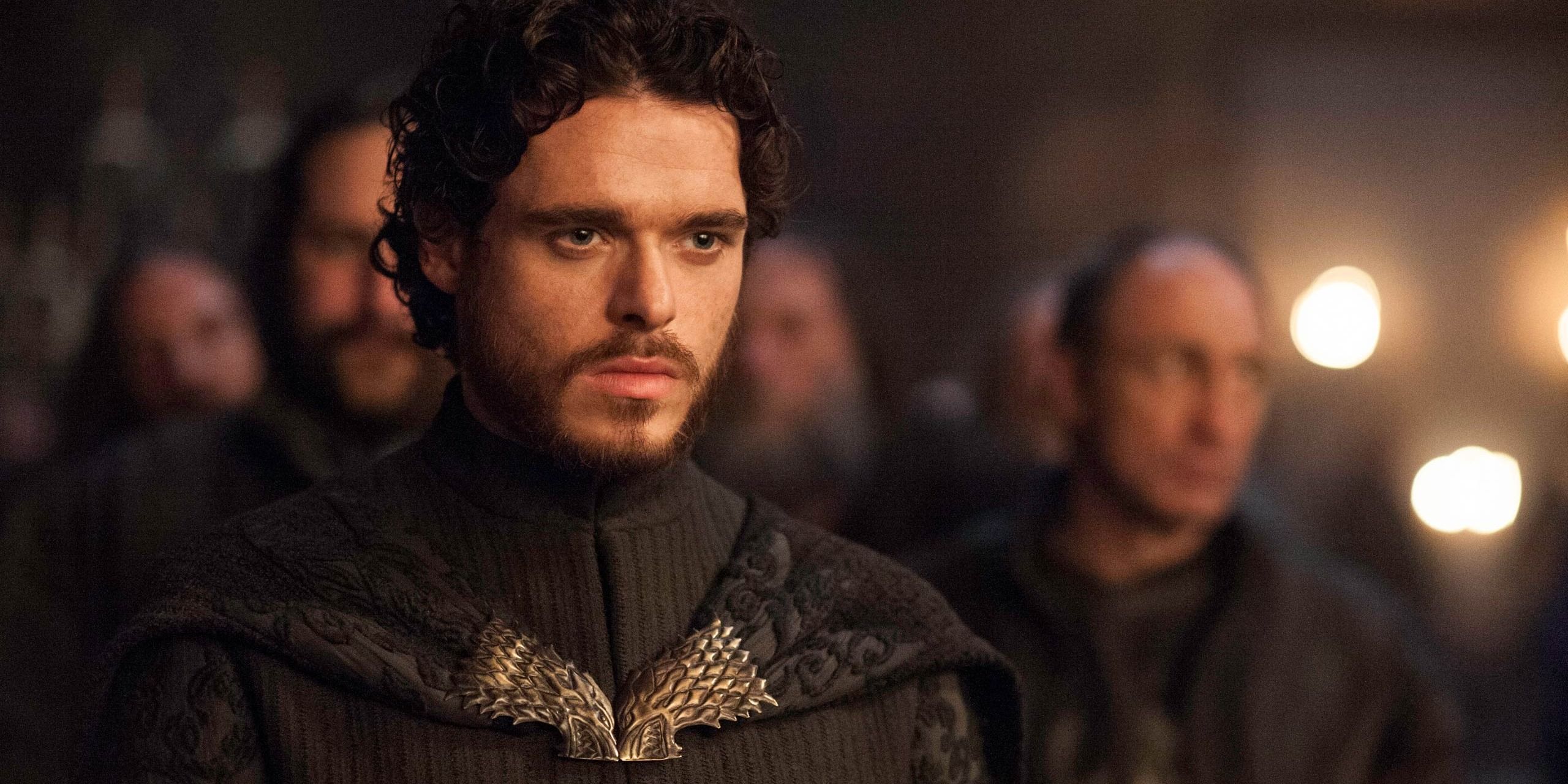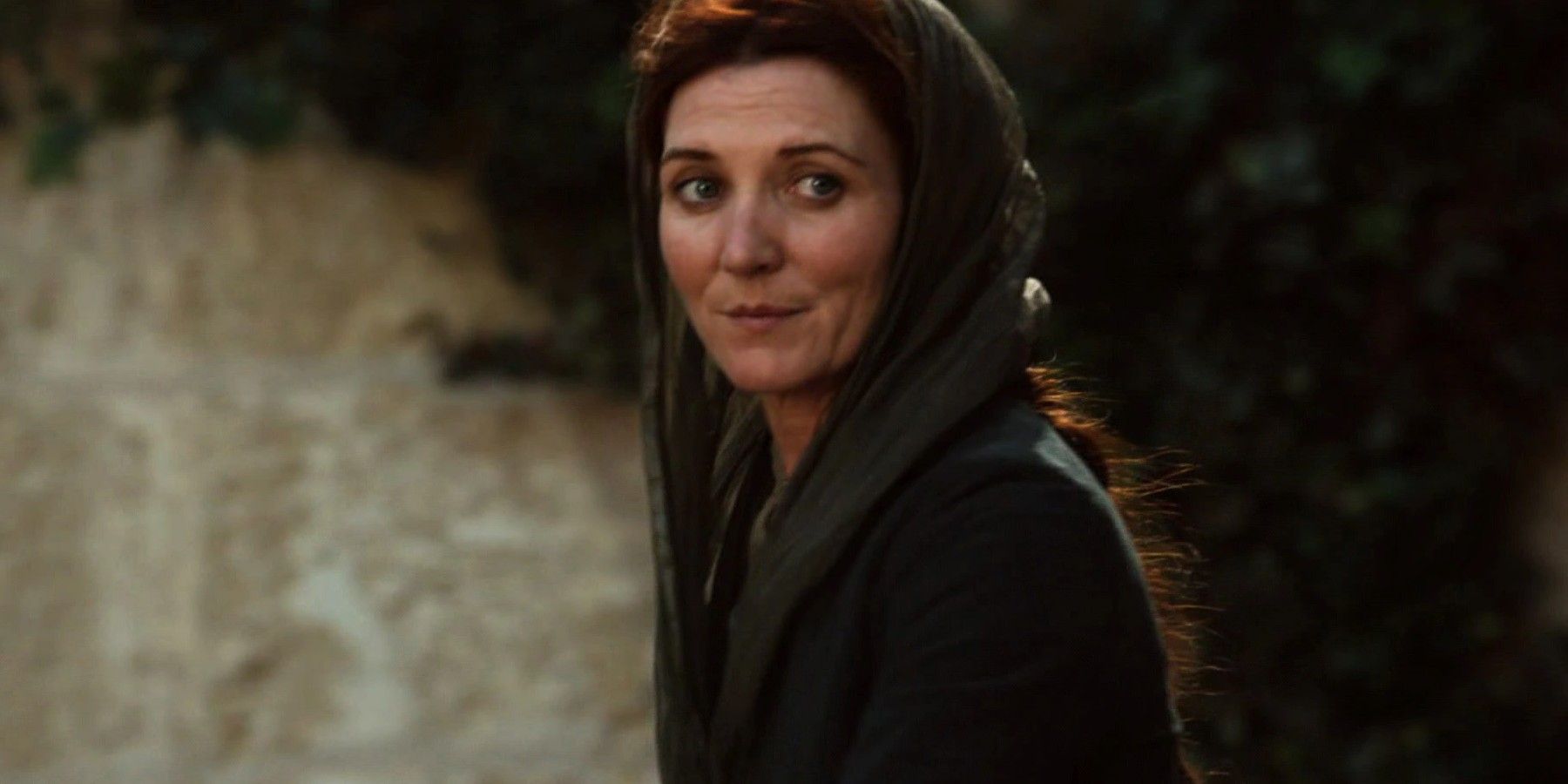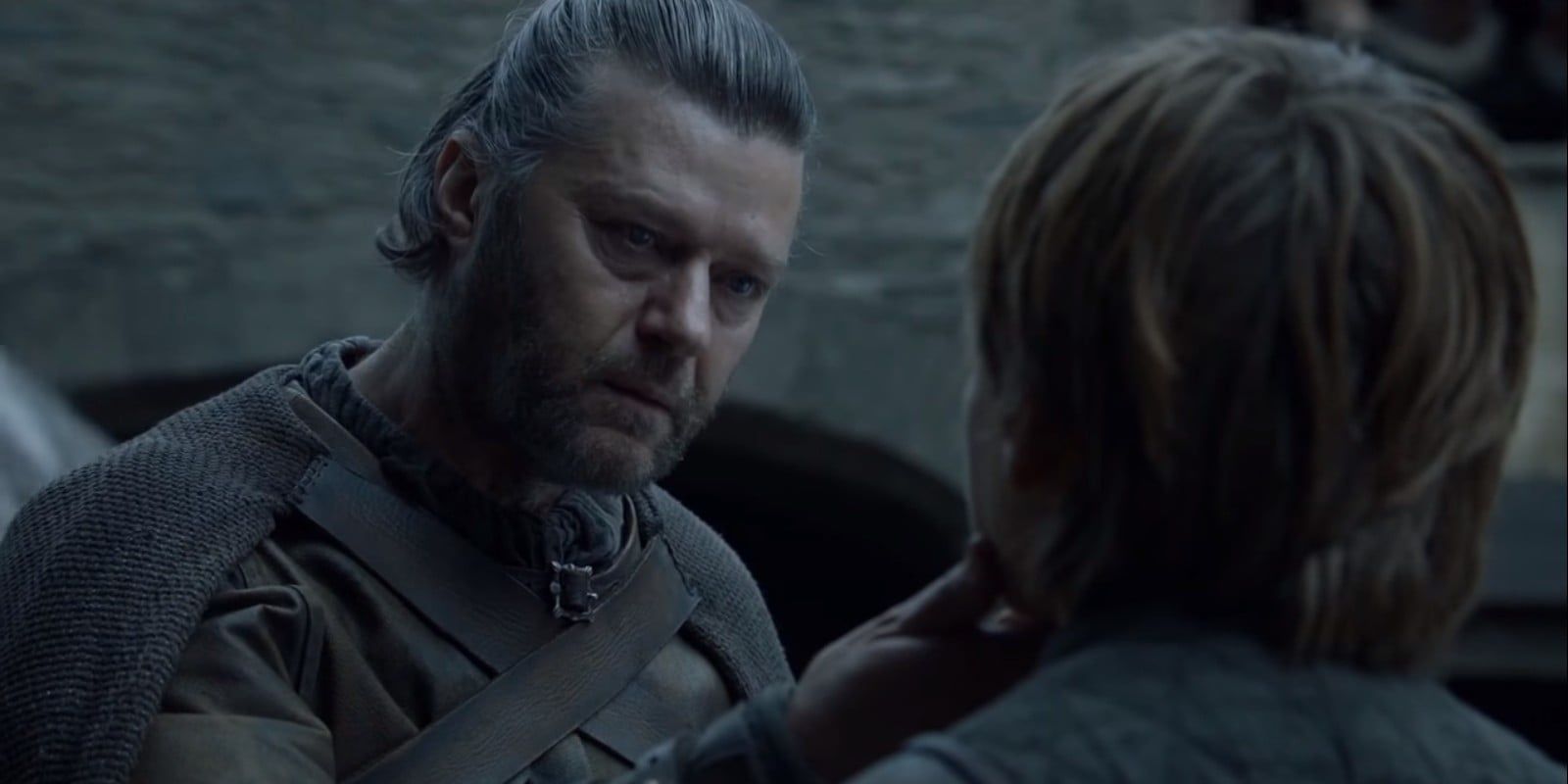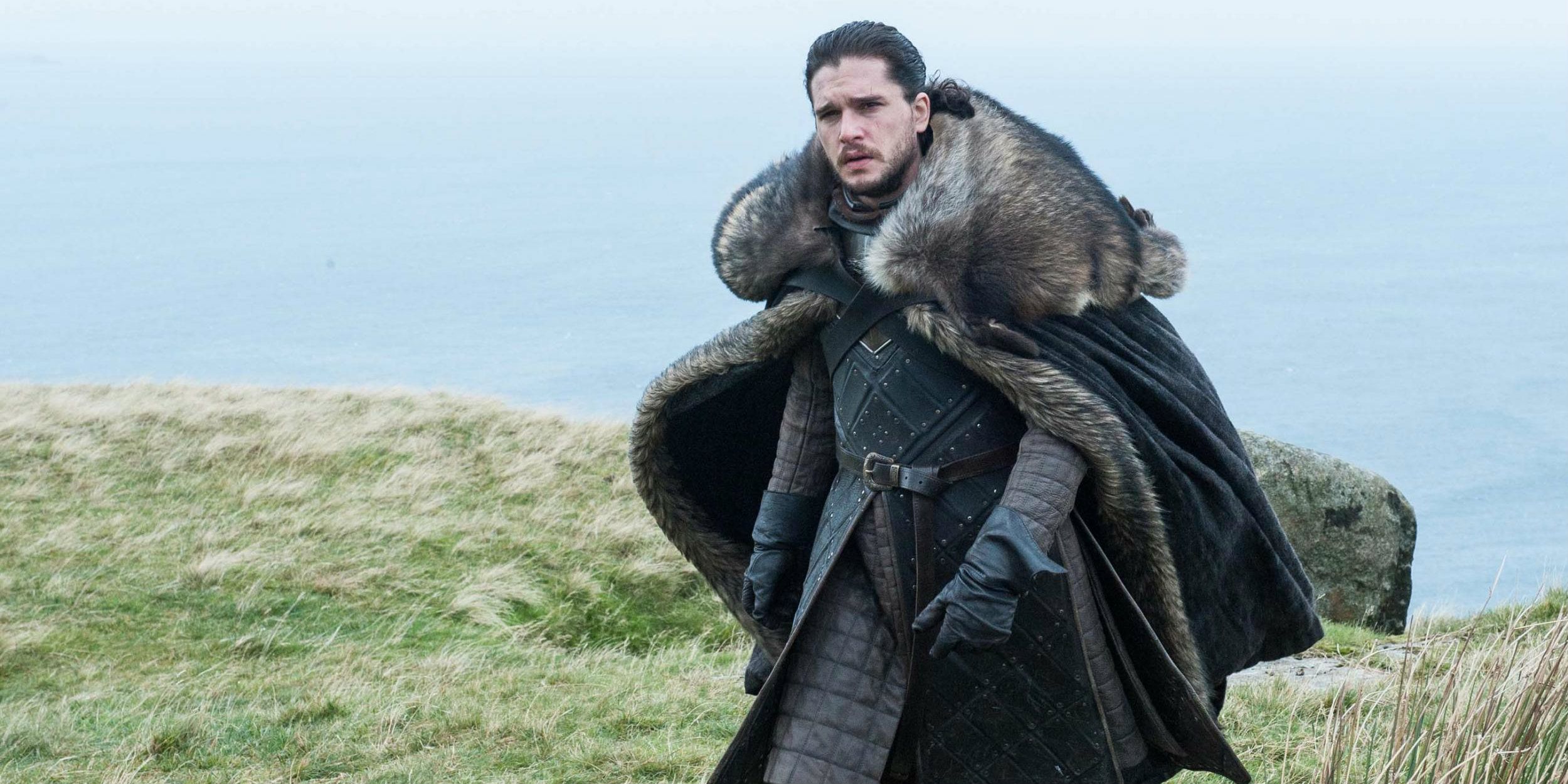After the last few seasons of Game of Thrones mainly focused on large action setpieces and cheap thrills, House of the Dragon is a welcome return to the politicking and intrigue that first made the original show so successful.
Indeed, Game of Thrones has multiple politically savvy characters who manipulated events from behind the Iron Throne. Almost every major family got in on the political action, including the Starks, Westeros' most honorable family. Their by-the-book attitude didn't allow for much scheming, but many of the Starks learned to be sensible leaders, and some even embraced court intrigue.
Rickon Stark
Poor Rickon. The youngest Stark never got the chance to participate in the game, nor wanted to, in all fairness. The show's events happened while he was still a kid, and he went into hiding, cared for by the wildling Osha.
Because of his youth, Rickon never gained any political experience. He spent the latter part of his life hiding with the Umbers, who ultimately betrayed him. Osha was fiercely protective of him, so it makes sense that she would want to shield him from almost everything, including any political experience he could achieve. In the books, Rickon will surely play a more active role, but the show chose to dispose of him quickly.
Arya Stark
Arya is one of the best characters in both the books and the show. However, she's the least politically savvy of the Stark children, mainly because she has no interest in politics. Arya's experiences shaped her worldview; she learned that loyalty and honor kill, and the only person she can trust is herself.
In season 8, she tells Jon she doesn't "need any allies," which could very well be her mantra. Arya is a lone wolf, stepping out of the pack to find new challenges. She rejects Gendry's marriage proposal and opts to leave and explore the world, away from royal courts and politicking of any kind.
Brandon Stark
Although never seen on the show, Brandon Stark's shadow looms large over Game of Thrones. He was Ned's older brother, the original heir to Winterfell and Catelyn's betrothed. After Lyanna's apparent abduction by Rhaegar, Brandon rode to King's Landing and demanded his sister's return and the Prince's death. In response, Mad King Aerys II killed him and his father, Rickard.
Catelyn describes Brandon as "hot-blooded." During the tourney at Harrenhal, Brandon has to be restrained from attacking Rhaegar after the Prince crowns Lyanna Queen of Love and Beauty. In short, he didn't have a very politically savvy mind; instead, he chose to act first and think second, if ever.
Bran Stark
For some reason, Brandon Stark ends up on the Iron Throne. Whether he has any genuine qualifications for the role (he doesn't) is of seemingly no importance because he apparently has the best story in the council of surviving characters.
In truth, Bran was almost as inexperienced as Rickon, although he did have a short stint ruling Winterfell. His time beyond the Wall turned him into the Three-Eyed Raven, making him speak in riddles and depriving him of all emotion. He claims he is no longer Brandon Stark numerous times, yet still expresses some desire to become king. Bran lacks any knowledge about ruling a kingdom, and while he received a proper education from Maester Luwin, it was never about politics because Bran was second-in-line to become Lord of Winterfell.
Ned Stark
Although honorable and loyal, Ned Stark made dumb decisions throughout Game of Thrones and lost his head because of them. Ned wasn't supposed to become Lord of Winterfell, but he fulfilled his duty to the best of his abilities. By all accounts, Ned was a fair and just Lord, loved by most of his bannermen.
Ned's fatal flaw, and the reason he was a terrible politician, was his honesty. Westerosi politics are all about lying and cheating, and Ned wasn't good at either. He believed the best in people and paid dearly for his naiveté. His willingness to trust Cersei Lannister, of all people, sealed the deal for him.
Robb Stark
Robb was an improvement over his father, to be sure. He was strong but compassionate, brave and decisive but gentle when necessary. Above all, Robb understood the importance of ruthlessness in battle and diplomacy outside of it and was willing to hear the other side.
Despite his admirable qualities, Robb was not particularly honorable. He went back on his word to marry Walder Frey's daughter, thus condemning himself and everyone he loved. Robb Stark remains a divisive character among GoT fans, with many praising his numerous strengths but harshly condemning his fatal flaws.
Catelyn Stark
Game of Thrones is all about strong mothers, and Catelyn Stark is the best example. Decisive and brave, Catelyn was the perfect combination of Stark and Tully, for better and worse. She was Robb's closest confidant, experienced enough to negotiate with Renly Baratheon and offer wise political advice and a unique perspective.
Cat's fatal flaw was her overly emotional behavior. She arrested Tyrion without sound proof and released Jaime, hoping it would secure Sansa and Arya's freedom. Catelyn's motherly love was her greatest strength, but it also clouded her judgment, making her a less-than-ideal politician.
Rickard Stark
Ned's father, Rickard, was surprisingly ambitious. While most Starks seemed content with staying in the North, Rickard wanted to spread his family's reach. He arranged politically advantageous marriages for his children, betrothing Brandon to Catelyn Tully, thus securing the Riverlands, and Lyanna to Robert Baratheon, strengthening his bond with the Stormlands.
Rickard was willing to venture south, visiting the capital and even negotiating with Aerys II before madness claimed him. He was also clever enough to accept advice, although some say he relied too much on Maester, Walys. Had Rhaegar and Lyanna not eloped, Rickard could've succeeded in spreading the Stark influence far beyond the gates of Winterfell.
Jon Snow
Although he has a reputation for knowing nothing, Jon Snow was more intelligent than the Game of Thrones fandom thinks. He was honorable to a fault but showed decisiveness as a leader. Jon successfully led the Night's Watch against the wildlings and inspired the North to rally behind him. He punished those who betrayed him but showed mercy when necessary.
Jon's progressive actions brought him considerable trouble — he even died for them. Still, Westeros could've used a leader like him. Jon was honorable but intelligent enough to rely on the advice of others with more experience. He would've been a worthy king of Westeros, inspiring loyalty and respect.
Sansa Stark
A politician in Westeros has to know their strengths and weaknesses. They have to trade in secrets, be ruthless enough to dispose of their enemies and smart enough to know when to be forgiving. Above all, they must be clever, staying one step ahead of everyone else. And by the show's end, there's no better politician than Sansa Stark.
The perfect student of Littlefinger and Cersei, Sansa used their knowledge but without their overwhelming flaws. She didn't lie but had no problem withholding the truth; she didn't kill but had many people by her side willing to do it. Sansa was manipulative but clever, standing her ground against anyone and inspiring devotion from the Lord of the North, who viewed her as a leader worthy of their fealty. Sansa was content with ruling over the North, but she was arguably the best choice to become Queen of the Seven Kingdoms out of all the surviving characters.

